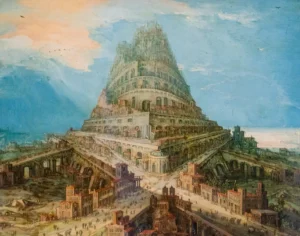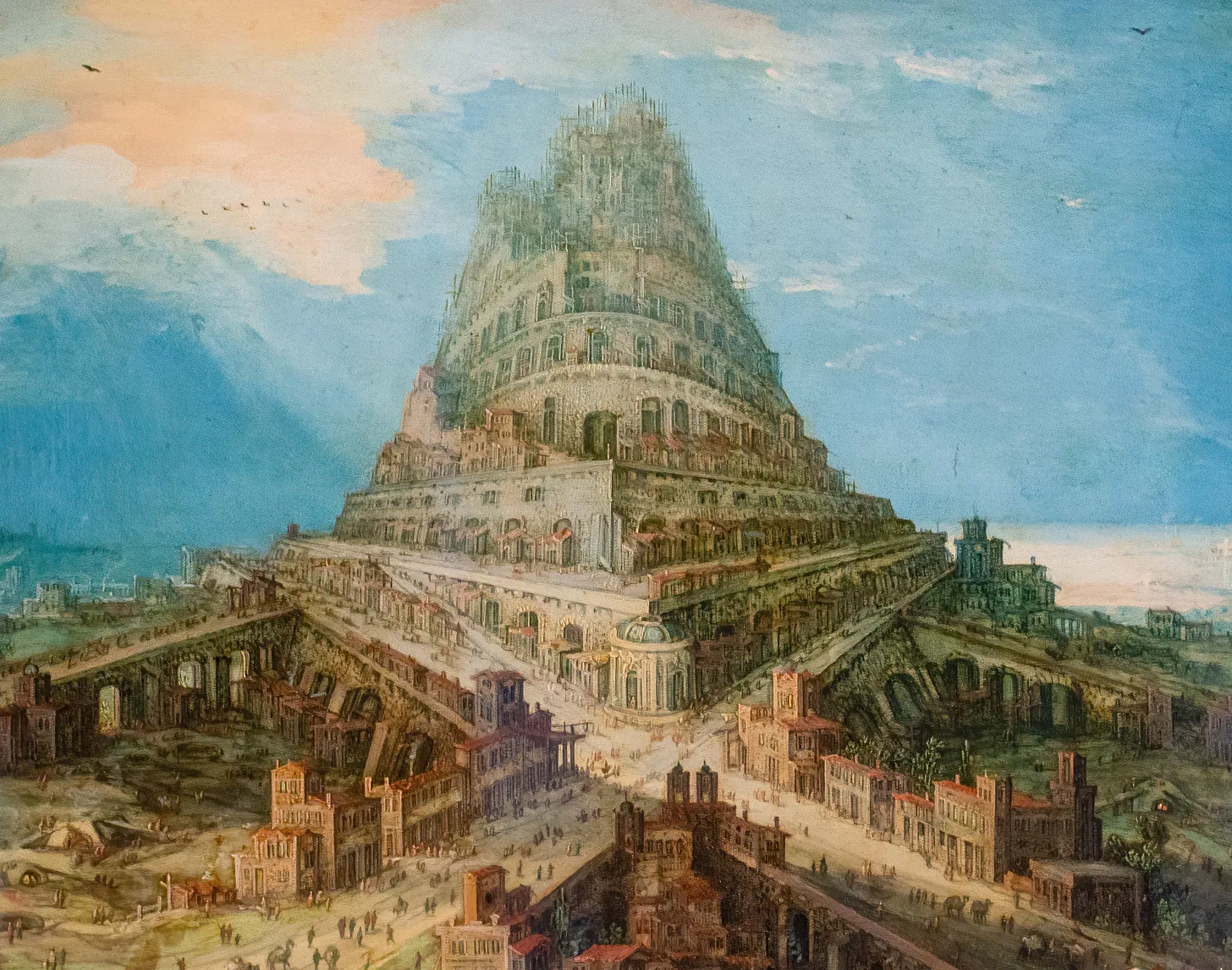
Human beings have always tended to put their hope in the governments and religions of this world to provide for their needs and to protect them from harm. From the dawn of civilization, most of us have wished to live peaceful lives, to be healthy, and to be prosperous and we have hoped these would be delivered to us by those who lead the organizations and institutions of this world.
As governments and religions developed and evolved over time, they presented the promise of health, wealth and security to their constituents in various ways: a strong military, sound laws with enforcement and justice, secular and spiritual education, competitive economic policies, meaningful work with compensation, advancements in science and technology.
Hope in various forms of governments and faiths, which have often worked together throughout history, is important to humans living in this “cosmos” or the world’s political/social/economic/religious systems.
But what happens when such hope turns to fear because of: loss of security, inconsistent or no justice, re-imagined education, unsustainable government actions, mass unemployment and increasing reliance on “evolving” science and advancing technology? Some unfortunate consequences we may have noticed are:
-
- Widespread mental health issues rampant among adults and children of all segments of the population – severe depression, addiction, violence and suicide.
-
- Societal breakdowns with dramatic increases in broken families, spousal and child abuse, myriad untreated illnesses and a host of other problems.
-
- Economic insecurity caused by widespread business failure, unemployment, to be followed by increasing homelessness and a lack of life’s necessities.
-
- Breakdown of law and order with criminality overwhelming diminished or leashed enforcement; redefined justice or none at all.
-
- Religious faith is lost or shaken with support diminished or disallowed and reliance on science and technology; values are compromised, and consciences are seared.
During the recent Pandemic, I had conversations with a medical doctor that immigrated from a country where I worked in my younger years. In a letter he wrote to me, he expressed bleak circumstances that showed what almost two years of universally imposed societal restrictions had produced in his patients:
“COVID resulted in a significant rise of medical issues…migraines, anxiety, depression to name a few, and most importantly the various stressors that led many to premature aging. The uncertainties about losing a job, financial constraints and social condition indeed expedited the aging process resulting in loss of self-confidence in many.
“As you are aware, the world has changed and the workforce has been greatly affected with many businesses closing, significant job losses and enormous challenges of conducting regular businesses.
“The psychological impact of the unprecedented times has fuelled body image issues, and the distorting powers of video-chat platforms and social media are partly to be blamed. More and more people are examining their perceived flaws and are seeking services, aiming to correct these matters…
“Because of the increasing demand for these medical issues to be addressed and with the hopes of building a healthy community, we have expanded services rendered as a Family/Walk-In Clinic to include medically indicated treatment of migraines, anxiety, depression, phobia and address premature aging and non-surgical aesthetic goals to restore self-esteem and confidence affected by prolonged lockdowns and mental health issues…”
In other words, many of the people he was seeing had lost hope and were struggling with all manner of mental and emotional problems that re causing the physical breakdown of their bodies. It is a widespread situation from which our Western societies have not recovered from to this day.
Note: I will not engage with the validity arguments on the origins of COVID, nor the veracity of public messaging from governments and media, nor the efficacy of vaccines, etc.
Post-COVID, do you and I feel a lack of hope in what the future will hold, and it is exacting a heavy toll on people – in our households, at work, in school, in many public spaces we access regularly?
Can you feel it? Is it getting to you? Does this life seem without hope for you and me at times? These are important questions, because people without hope may simply give up on life.
We might reference some of the thoughts of an Austrian-Jew who was a psychiatrist, philosopher and psychologist who lived during most of the previous century: Victor Frankl.
Before World War 2 he specialized in the treatment of suicidal patients and came up with the concept of “logotherapy,” a Greek term that can be translated as “healing through meaning.”
With the outbreak of the War, his family was sent to a ghetto in Vienna, where his father died; then he, his wife, his brother and mother were sent to concentration camps – his mother and his brother died in Auschwitz; his wife died in Bergen-Belsen.
Dr. Frankl spent three years in four concentration camps, which unfortunately became a laboratory for his theories. His conclusion on why many of his fellow prisoners either survived or perished in this horrendous experience is worth considering:
“Hope is power…people who had hope of being reunited with loved ones, projects they felt a need to complete, or great faith in God tended to have better chances of their wishes coming true than those who had lost hope…”
The power to survive severe setbacks in life, Dr. Frankl linked to hope. This is a main conclusion in his experience within Nazi concentration camps. The subjects of his observations were in the majority Jewish but included others from varying cultural or religious backgrounds.
In life’s tests, trials and tribulation the Christian also needs hope to survive, and the New Testament of the Bible gives us four great elements of the hope to consider.
Before we go through these, please realize that this hope is only in us because of the spirit or power of God and it is given to us by God to guide and comfort us at all times but is especially needed during times of trouble and trial and tribulation – this the apostle Paul made quite clear in Romans 5:2-7 (J.B. Phillips Translation of the New Testament):
“Through Him [Jesus Christ] we have confidently entered into this new relationship of grace, and here we take our stand, in happy certainty of the glorious things He has for us in the future. This doesn’t mean, of course, that we have only hope of future joys – we can be full of joy here and now even in our trials and troubles.
“These very things will give us patient endurance; this in turn will develop a mature character, and a character of this sort produces steady hope, a hope that will never disappoint us. Already we have the love of God flooding through our hearts by the holy spirit given to us. And we can see that it was at the very time that we were powerless to help ourselves that Christ died for sinful men…”
We cannot work up this kind of hope – it is given to us to deal with trials and troubles that we are sure to face. The holy spirit in us will help us to endure these tribulations; enduring will develop holy righteous character; this character will produce hope.
With this, let’s get to the aforementioned four elements of hope:
The first element of this hope is the GOSPEL. Please see how the apostle Paul addressed the Colossians in this regard – Colossians 1:1-6:
“Paul, an apostle of Jesus Christ by the will of God, and Timothy our brother, to the saints and faithful brethren in Christ who are in Colosse: Grace to you and peace from God our Father and from the Lord Jesus Christ.
“We give thanks to the God and Father of our Lord Jesus Christ, praying always for you, since we heard of your faith in Christ Jesus and of your love for all the saints; because of the hope which is laid up for you in heaven, of which you heard before in the word of the truth of the gospel, which has come to you, as it has to all the world, and is bringing forth fruit, as it has also among you since the day you heard and knew the grace of God in truth…”
That gospel is good news about the future kingdom of God on this earth. It proclaims a time when the kingdoms of this world and all the warring and oppression is displaced by a new order. It heralds a time of restoration and refreshing that God’s servants have talked about and hoped for throughout the last six millennia. All of God’s servants up to now kept the hope of this better time in a better world to the day of their passing from this life.
How do you and I keep up the anticipation and expectation and hope of the gospel to the end of our lives, whether through death now or the instant change if we live to Christ’s return to bring the fulfillment of our hope in the gospel – the kingdom of God? Jesus Christ gave us the answer in what we should pray for in an outline found in Matthew 6:9-13:
“In this manner, therefore, pray: ‘Our Father in heaven, hallowed be Your name. Your kingdom come. Your will be done on earth as it is in heaven. Give us this day our daily bread, and forgive us our debts as we forgive our debtors. And do not allow us to be led into temptation, but deliver us from the evil one. For Yours is the kingdom and the power and the glory forever. Amen.”
Notice that God’s kingdom is mentioned twice – once at the beginning and once at the end of this prayer. It was Jesus Christ’s focus, and it should be ours. How better to continually reinforce the hope of the gospel than to pray for its fulfillment.
Colossians 1:21-23 further emphasizes the hope that is in the gospel:
“And you, who once were alienated and enemies in your mind by wicked works, yet now He has reconciled in the body of His (Jesus Christ’s) flesh through death, to present you holy and blameless, and irreproachable in His sight – if indeed you continue in the faith [conviction, persuasion], grounded and steadfast, and are not moved away from the hope [anticipation, expectation] of the gospel which you heard, which was preached to every creature under heaven, of which I, Paul, became a minister.”
Life will not always be as difficult and painful and sorrowful and unjust as it is now – but it will take the replacing of this “cosmos” or world and all its kingdoms with the kingdom of God – the realization or fulfillment of the gospel, the first element of the hope that lies within us.
The second element of our hope is God’s CALLING – which is a direct result of hearing the gospel. The Father’s calling throughout time is very selective and special [John 6:44] and in the Christian era He calls us to Jesus Christ and the church that He is building. Here is Paul again in Ephesians 1:13-18:
“In Him [Jesus Christ] you also trusted, after you heard the word of truth, the gospel of your salvation; in whom also, having believed, you were sealed with the holy spirit of promise, the guarantee of our inheritance until the redemption of the purchased possession, to the praise of His glory.
“Therefore, I also, after I heard of your faith in the Lord Jesus and your love for all the saints, do not cease to give thanks for you, making mention of you in my prayers: that the God of our Lord Jesus Christ, the Father of glory, may give to you the spirit of wisdom and revelation in the knowledge of Him, the eyes of your understanding being enlightened; that you may know what is the hope of His calling, what are the riches of the glory of His inheritance in the saints…”
To be “called” by God means to be “invited” or “offered vocation” [Greek ‘klesis’] – it is an opportunity to serve God and His purposes – the only hope we really have. God’s calling begins the process of growth that the apostle Peter describes in II Peter 1:2-4:
“Grace and peace be multiplied to you in the knowledge of God and of Jesus our Lord, as His divine power has given us all things that pertain to life and godliness, through the knowledge of Him who called us by glory and virtue, by which have been given to us exceedingly great and precious promises, that through these you may be partakers of the divine nature, having escaped the corruption that is in the world through lust.”
With God’s calling comes all things that pertain to life and godliness and knowledge of Him and the exceedingly great and precious promises He has made to us, and an escape from the world’s corruption via its lusts (and natural consequences). Peter gets specific about what happens to us with God’s calling in verses 5-9:
“But also, for this very reason, giving all diligence, add to your faith virtue, to virtue knowledge, to knowledge self-control, to self control perseverance, to perseverance godliness, to godliness brotherly kindness, and to brotherly kindness love. For if these things are yours and abound, you will be neither barren nor unfruitful in the knowledge of our Lord Jesus Christ. For he who lacks these things is short-sighted, even to blindness and has forgotten that he was cleansed from his old sins.”
Forget the calling or invitation or the vocation offered by God specially to you and me, and our hope will vanish. Conversely, remember what you and I were called to and what manner of person we are to be and develop into as God prescribes through Peter…and verses 10-11 describe what we can hope for:
“Therefore, brethren, be even more diligent to make your call and election sure, for if you do these things, you will never stumble; for so an entrance will be supplied to you abundantly into the everlasting kingdom of Lord and Savior Jesus Christ.”
There is great hope in God’s calling, invitation and offer of vocation to His service – remember that hope when it seems like everyone and everything in this world is working against you.
The third element of our hope is SALVATION. Whether you think of salvation in terms of deliverance out of our trials and troubles in this life or salvation to eternal life when Jesus Christ returns, we can anticipate, expect and hope for salvation.
In Romans 8:22-25, Paul describes hope for salvation (J.B. Phillips Translation):
“It is plain to anyone with eyes to see that at the present time all created life groans in a sort of universal travail. And it is plain too, that we who have a foretaste of the spirit are in a state of painful tension, while we wait for that redemption of our bodies which will mean that we have realized our full sonship in Him.
“We are saved – [Gr. sozo – delivered, protected, made safe] by this hope, and let us remember that hope always means waiting for something we do not yet see. For whoever hopes when he can see? But if we hope for something we cannot see, then we must settle down to wait for it in patience.”
This type of hope will enable us to overcome the fear and dread in the worst of what this world and its rulers (spirit and human) can throw at us. We could go to many scriptures, but I like Revelation 12:10-11:
“Then I heard a loud voice saying in heaven, “Now salvation, and strength, and the kingdom of our God, and the power of His Christ have come, for the accuser of our brethren, who accused them before our God, day and night, has been cast down. And they overcame him by the blood of the Lamb and by the word of their testimony, and they did not love their lives to the death.”
Ultimately in life and in death, the hope of salvation, protection and deliverance can only come from God with the application of Jesus Christ’s sacrifice, the record of our lives in God’s service and not being so invested in this human form and the world that we will do anything we can to preserve it.
Such salvation does not come from this present world and its political, social, economic and religious systems – remember Jesus said those who try to save their lives will lose them – that sort of hope is futile (Matthew 16:24-26). But whomever will lose his life for Christ’s sake will find it (figuratively and literally).
Does everything we think, say and do reflect the anticipation, expectation and hope of God’s salvation? Does this help us to “get out of bed every morning?” Does it put a “spring in our step?”
The fourth and final element of our hope is GLORY. We were in Colossians 1 earlier, and I would like to return there to examine verses 26-27 specifically (Phillips) – cutting into Paul’s description of his ministry at the end of verse 25:
“…that I might declare God’s Word – that sacred mystery which up till now has been hidden in every age and every generation, but which is now as clear as daylight to those who love God.
“They are those to whom God has planned to give a vision of the wonder and splendor of His secret plan for the nations. And the secret is simply this: Christ in you! Yes, Christ in you bringing with Him the hope of all the glorious things to come (or Christ in you, the hope of glory).”
II Thessalonians 2:13-17 puts these four elements of hope together for us, though not in the same order as outlined above:
“But we are bound to give thanks to God always for you, brethren beloved by the Lord, because God from the beginning chose you for salvation through sanctification by the spirit and belief in the truth to which He called you by our gospel, for the obtaining of the glory of our Lord Jesus Christ.”
In these times of worldwide despair and hopelessness, we have so much to hope for! The hope of the GOSPEL. The hope of our CALLING. The hope of SALVATION. The hope of GLORY. These four elements of our hope are sure, because we believe that He who promised the fulfillment of our hope cannot lie.









